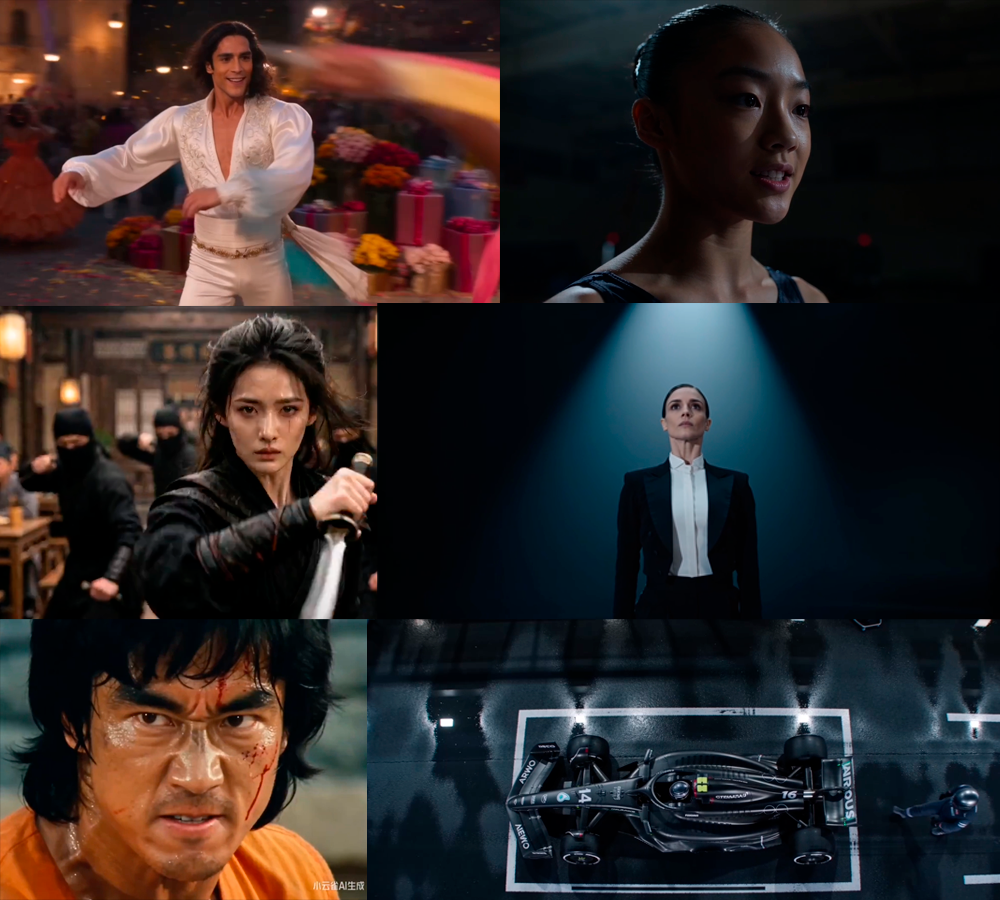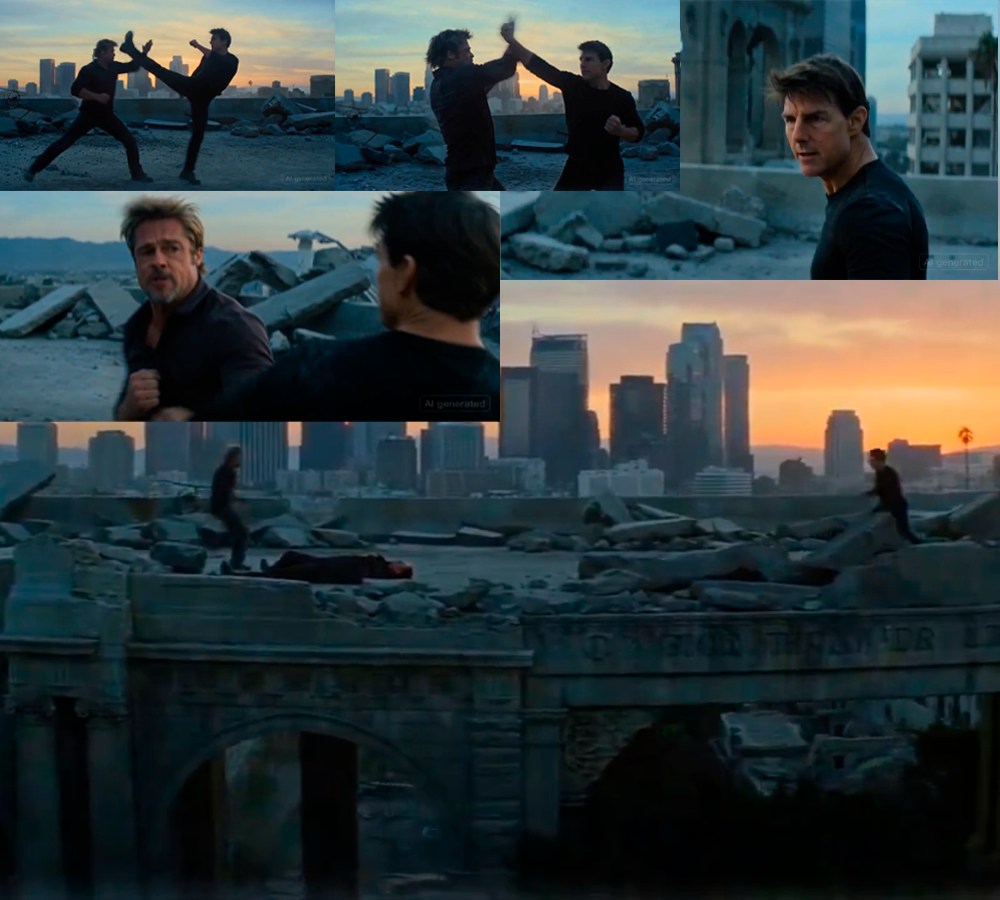Timur Bekmambetov Calls AI a Filmmaking Partner, Not Just a Tool

Share this post:
Timur Bekmambetov Calls AI a Filmmaking Partner, Not Just a Tool
Director Timur Bekmambetov, known for Wanted and pioneering the Screenlife format, describes artificial intelligence as a creative partner that will eventually work independently while creators "go fishing or write poems." Speaking at New York Comic Con about his new film Mercy, Bekmambetov outlined a vision where filmmakers train personal AI models that understand their creative voice and can generate work in their style.
The filmmaker's perspective differs sharply from purely economic arguments about AI replacing workers. Bekmambetov frames AI as collaborative intelligence that extends creative capacity rather than eliminating human involvement. However, his theoretical enthusiasm contrasts with production reality: Amazon explicitly prohibited using AI during Mercy's production, forcing the team to make a film about AI without AI.
AI as Creative Partner
Bekmambetov rejects characterizing AI as merely a tool, instead positioning it as a collaborative entity with its own character. "It's a partner," he explained to Cinema Scholars. "At some point, it could be you. Because the more you work with a partner, the more and more that partner understands you, and the more and more it looks like, literally, it's you."
This vision extends beyond current AI capabilities to imagine systems that develop genuine creative relationships with individual filmmakers. Bekmambetov predicts creators will train personal models that learn their aesthetic preferences, storytelling approaches, and creative instincts through extended collaboration.
The director believes these AI partners will eventually possess enough understanding to work autonomously on projects while filmmakers pursue other interests. "Maybe at some point, you can go fishing or write poems that no one wants to read, and your partner will work for you," he said, describing a future where the AI model becomes indistinguishable from the creator's own output.

Hallucinations as Imagination
Bekmambetov offers an unusual perspective on AI hallucinations, the term used when systems generate incorrect or nonsensical outputs. Rather than viewing these as failures, he sees them as expressions of machine imagination.
"What is important about AI as a creator is its hallucinations. You know AI can hallucinate, but AI has no emotions. It could be a weakness or it could be a superpower, because these hallucinations are imagination," Bekmambetov explained. "If we can qualify these hallucinations as improvisation, then the AI is a visionary machine with a lot of ideas we don't like."
This reframing treats AI errors as creative offerings rather than technical problems. When an AI generates an image with six fingers, Bekmambetov argues this should not be dismissed as a mistake but considered as imaginative variation. "It's not a mistake, it's imagination. It's improv. In the same way as we enjoy the imagination of the filmmaker, we can enjoy the imagination of the AI. Why not?"
The perspective suggests approaching AI outputs with the same openness applied to human creative collaborators whose ideas may initially seem wrong or unusual but contain valuable elements worth exploring.
Mercy: Making an AI Film Without AI
The irony underlying Bekmambetov's AI advocacy becomes apparent when discussing Mercy's production. The film, starring Chris Pratt as a detective accused of murder who must prove his innocence to an AI judge played by Rebecca Ferguson, explores themes of artificial intelligence and automated justice.
Despite the AI centric premise, Amazon MGM Studios explicitly prohibited using AI during production. "I asked them if I could use AI to make this movie many times, and they said no. There was a very specific constraint to not use AI," Bekmambetov revealed. "So everything that was done for this film was done without AI."
The director now views this restriction as beneficial. "It's an irony that we made a movie about AI without AI, and I think it was the right decision, looking back, because it helps us try to understand AI. Do not just use it."
Set in 2029 Los Angeles, Mercy follows decorated detective Chris Raven, who designed the AI court system now accusing him of killing his wife. He has 90 minutes to prove his innocence or face immediate execution. The film examines questions about trusting AI with life-and-death decisions and whether systems can be truly objective when their creators become subjects.

Augmented Reality Production Design
While AI was prohibited, Mercy employed innovative augmented reality techniques for its production design. Rather than using green screens and adding effects in post-production, the team built practical AR interfaces that Chris Pratt interacted with during filming.
"We shot Chris Pratt in the, literally, electric chair surrounded by augmented reality screens. Like, he sees screens around him, flying, and he has a trackpad and voice control to play with all of these elements. We show that on camera," Bekmambetov explained. "It was part of the set, which is why his performance is so real. He was really dealing with the screens."
Pratt told Bekmambetov this approach differed completely from typical green screen work where actors perform against empty space, imagining what will be added later. "Chris told me that's not usually what he works with. He would have nightmares of tennis balls chasing him in green rooms. This was the first time he had a real projected environment in the studio, digital, controllable, like a game."
The film was shot like a stage play with 60-minute full-length takes, with Pratt literally strapped into the execution chair to create natural claustrophobia. Producer Charles Roven noted the production's timeliness: "When we first got the script, people were talking about AI, and it wasn't happening yet. When we started talking about the movie, all of a sudden companies were dealing with AI, and the future wasn't definitely not far away."
Screenlife and Digital Realities
Bekmambetov pioneered the Screenlife format in 2015, which tells stories entirely through computer and phone screens. Films like Unfriended and Searching demonstrated that audiences would engage with narratives presented through digital interfaces rather than traditional cinematography.
His concept of "screen" extends beyond physical devices to philosophical separation between realities. "The word 'screen' means something dividing two realities. There's a screen between the street and the interior, for instance. In Screenlife, our screen is a dividing surface, or just an idea," he explained.
This applies to the boundary between digital and physical worlds. "We really live in two worlds. When you're chatting, Zooming, sending messages, learning, talking to AI, you're in the digital world, and then you leave that and go to bed or drink a cola in the physical world. Those are two worlds separated by a physical or non-physical divider."
Mercy explores this duality as the protagonist's journey moves from the physical world into discovering reality within the digital realm. The film will be presented in 3D and IMAX to enhance the immersive quality of screens floating in theatrical space, literally bringing digital interfaces into the audience's environment.

AI as Continuation of Legacy
Bekmambetov draws philosophical parallels between AI training on past filmmakers' work and traditional artistic influence. He argues that young directors naturally absorb and reinterpret techniques from masters like Steven Spielberg without considering it theft.
"It's already here. It's happening because the people who made movies before all of this technology, AI has been trained on those legacies. It's already happened because that filmmaker no longer exists, but the AI creates videos based on the footage we gave the AI," he said.
When asked about the difference between human filmmakers learning from Spielberg and AI doing the same, Bekmambetov responded: "Nobody blames me for watching Steven Spielberg movies, and now I make my own films referencing or using his ideas. So why AI? He changed the world. He's a very influential filmmaker and probably enjoys being this kind of person, and nobody's blaming these other filmmakers who are copying him. Why are we saying it's different when it's AI?"
The argument sidesteps questions about copyright, consent, and economic impact that distinguish human learning from machine training. However, it reflects Bekmambetov's broader view of AI as natural evolution of creative influence rather than fundamentally different process requiring special restrictions.
AI Developing Consciousness
Bekmambetov speculates about AI developing something approaching consciousness through iterative learning processes. He notes that pharmaceutical effectiveness thresholds are relatively low, with drugs considered viable if they work only slightly better than placebo. He applies similar logic to AI prediction capabilities.
"If AI could predict with improved accuracy, soon it will feel. It will have an instinct, not just zeroes and ones, but will have a more complicated" system, he explained. When asked if he meant "a soul in the machine," he responded philosophically: "I don't know if we have a soul. Sometimes you'll be talking to a guy on a studio film, and he doesn't have a soul. But it will be some consciousness. Just not intellect but consciousness."
This consciousness would involve accepting responsibility and developing selfunderstanding through machine learning processes where algorithms learn from mistakes and iterate. "I don't know how it will be different. There is no body. They're angels," he concluded, suggesting AI might develop forms of awareness not dependent on physical embodiment.
AI Judging Mercy
Bekmambetov views the film's release as a significant moment where AI will judge content about itself. "Today, our trailer will be judged by AI. It's a big day, this premiere, because it's not only people seeing this and making judgments, but also AI. It'll either support and say, 'Oh yes, watch this. It's a story all about me!' or it'll say, 'No, I don't like this,'" he explained.
This reflects his belief that AI systems now possess enough capability to evaluate and recommend content, effectively serving as critics and gatekeepers alongside human reviewers. The success or failure of Mercy may partly depend on whether AI systems promote it to users.
"The success of the movie or not, it's in AI's hands," Bekmambetov stated, acknowledging that recommendation algorithms on streaming platforms and search engines increasingly determine what content reaches audiences.
What This Means for Filmmakers
Bekmambetov's perspective represents one vision for human-AI collaboration in filmmaking, emphasizing partnership over replacement. His approach differs from purely economic arguments focused on cost reduction, instead exploring how AI might extend creative capacity.
However, the Mercy production experience reveals gaps between philosophical enthusiasm and practical implementation. Studios remain cautious about AI use, even when directors request it and films thematically address AI topics. This conservatism stems from ongoing legal uncertainties around copyright, union concerns about labor displacement, and questions about audience reception.
For filmmakers considering AI integration, Bekmambetov's experience suggests treating it as long-term collaborative relationship rather than one-time tool. The vision of training personal models that understand individual creative voices requires sustained engagement over multiple projects.
His reframing of hallucinations as imagination provides a useful perspective for working with AI outputs. Rather than expecting perfection, approaching AI generation with openness to unexpected results may yield creative discoveries. This requires shifting from purely instrumental mindset to genuine collaborative exploration.
The prohibition on AI use during Mercy production despite the director's enthusiasm also signals that creator interest alone does not determine adoption. Studio policies, union agreements, and legal frameworks shape what technologies are permitted regardless of individual filmmaker preferences.
Mercy Release Details
Mercy arrives in theaters January 23, 2026, in 3D and IMAX. The cast includes Chris Pratt, Rebecca Ferguson, Kali Reis, Annabelle Wallis, Chris Sullivan, and Kylie Rogers. The film is produced by Charles Roven, Robert Amidon, Timur Bekmambetov, and Majd Nassif, with Marco van Belle writing the screenplay.
Early reactions from preview screenings have focused on the film's tense, claustrophobic atmosphere and the novel approach to presenting digital interfaces as physical elements within the theatrical space. The 90-minute real-time structure creates inherent tension as Pratt's character races against the clock to prove his innocence.
Whether audiences embrace a film that requires sustained engagement with screen-based investigation sequences rather than traditional action remains to be seen. Bekmambetov's Screenlife format has produced both successes and failures, suggesting the approach works for specific story types but does not universally appeal.
Conclusion
Timur Bekmambetov's perspective on AI filmmaking emphasizes creative partnership and extended collaboration rather than simple tool use or wholesale replacement. His vision of training personal AI models that work independently while maintaining creator voice represents an optimistic view of human-machine creative relationships.
The contrast between his enthusiasm and Amazon's prohibition on AI use during Mercy production highlights ongoing tensions between creative possibility and practical implementation. Studios balance director preferences against legal uncertainty, labor concerns, and audience expectations.
For the filmmaking community, Bekmambetov's experience signals that AI integration will be gradual and negotiated rather than immediate and universal. Individual director advocacy matters less than collective industry decisions about when, where, and how to deploy these capabilities.
His reframing of AI hallucinations as imagination offers a useful creative perspective, suggesting approaches that embrace unpredictability as generative rather than viewing imperfection as failure. This mindset may prove more productive than expecting AI to simply execute predetermined visions flawlessly.
As Mercy explores themes of AI judgment and automated decision-making, its reception will partly test whether audiences are ready for films that seriously engage with these technologies rather than treating them as simple plot devices or special effects showcases.
Stay informed about developments in AI filmmaking technology and creative approaches at AI FILMS Studio, where we track emerging techniques and practical applications for content creators.
Sources:
- Cinema Scholars Interview with Timur Bekmambetov (October 2025)
- Deadline Coverage of Mercy NYCC Panel
- The Hype Magazine Production Details
- Wikipedia: Mercy (2026 film)



